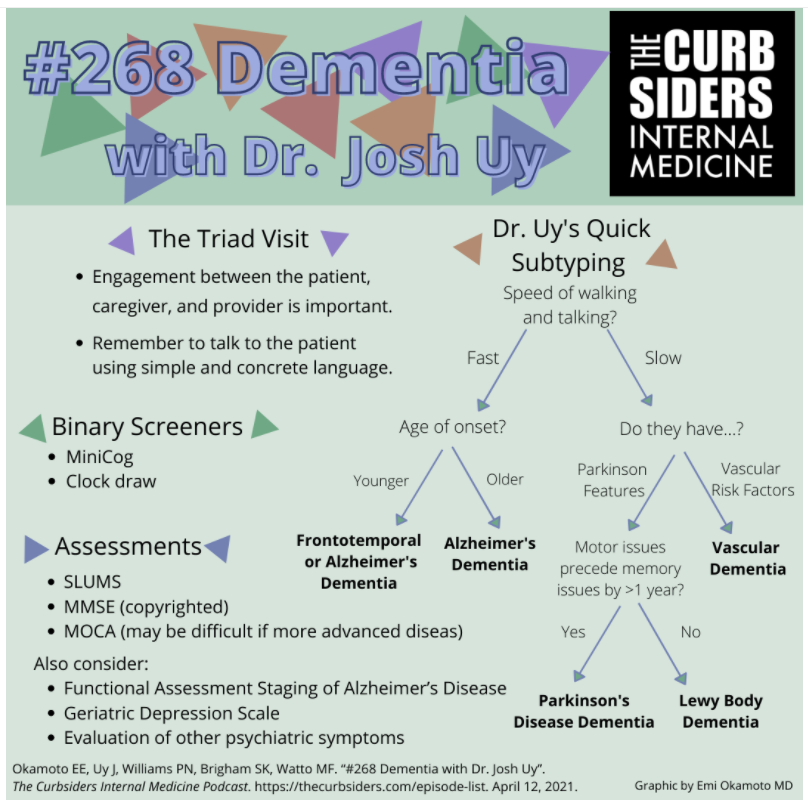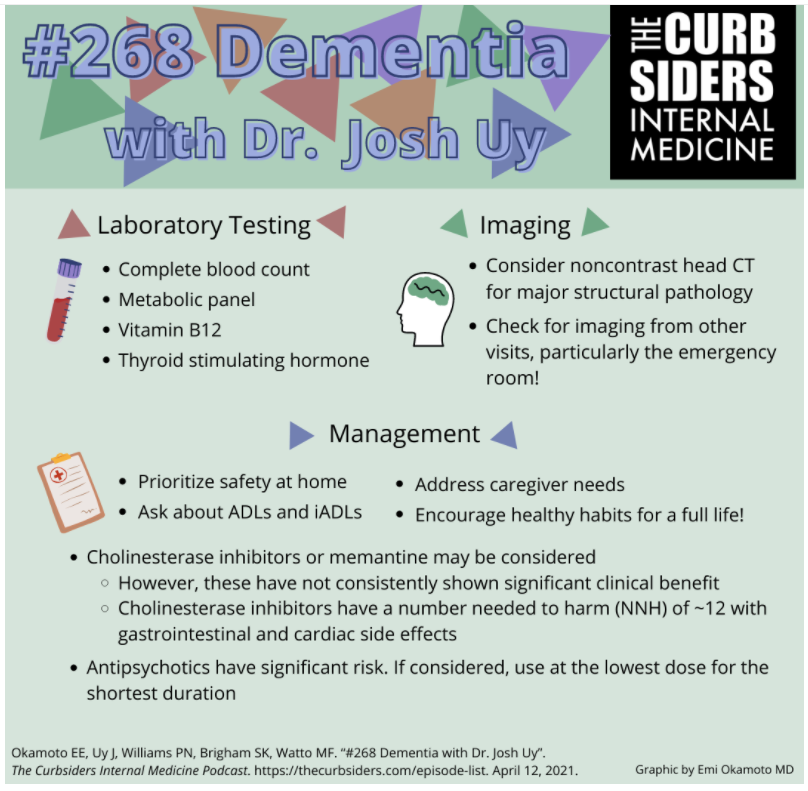In this post, I link to and excerpt from the Curbsiders’ [Link is to the complete episode list] #268 Dementia Made Simple with Dr. Josh Uy, APRIL 12, 2021 By EMI OKAMOTO.
In addition, after the excerpts, I add some of my thoughts on what I’ve learned from Dr.Uy’s lecture.
I’m going to include some infographics from the show notes and I will write up my thoughts on the evaluation of dementia based on what I learned from Dr. Uy.
All that follows is from the above podcast and post.
Dementia Pearls
- The pillars of dementia prevention and treatment rest on maintaining an overall healthy lifestyle, good physical health/optimal comorbidity management, and adequate social support (notice we didn’t say medications…)
- Standard assessments for dementia include the MOCA, MMSE, and SLUMS. While MOCA is sensitive for picking up mild deficits, it is a longer test and may be challenging for those with a higher symptom burden.
- Removing the stigma and shame of dementia is important. The clinician should ameliorate this by respecting patients and offering ways to achieve their overall goals for a good quality of life.
- Keep things simple. If you are scratching your head about ordering complex tests or imaging for atypical cases (e.g., younger patients or people with rapidly progressive dementia), these patients should be referred.
- Acetylcholinesterase inhibitors and memantine show marginal clinical improvement in trials and the number needed to harm for acetylcholinesterase inhibitors is 12.
- In rare cases, antipsychotics are needed to manage dangerous dementia-related behaviors (though this is not the first-line treatment!) If needed, use at the lowest dose possible for the shortest duration. The number needed to harm (where harm is an associated death) is 26-50.
Functional Assessment Staging of Alzheimer’s Disease
“The MiniCog or Clock Drawing test are [quick] binary screening tools.”
Evaluation of other psychiatric symptoms
The Symptom Checklist-90 (SCL90) is a 90-item questionnaire used to assess psychological problems. The Symptom Checklist-90-Revised (SCL90R) is the revised version of the questionnaire. The revised version is almost identical (2 questions with slightly different wording), but the main difference is that the SCL90R is not available on the public domain.
SCL 90 Questionnaire [Download PDF]
Note to myself and my readers: Be Sure And Review The Outstanding Show Notes.
And now what follows are my thoughts and take-home points from Dr. Uy’s lecture.






